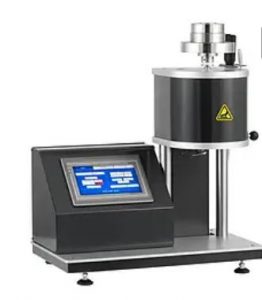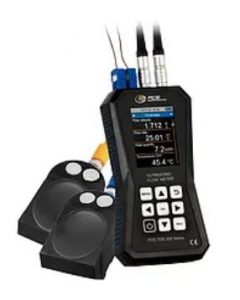Choosing the Right Ultrasonic Liquid Flow Meter: Factors to Consider
In the field of liquid applications, precision and accuracy in monitoring flow rates are critical. Whether for industrial processes, environmental monitoring, or research, choosing the correct flow meter is critical for obtaining trustworthy data. Ultrasonic flow meters have grown in popularity due to their non-intrusive nature and adaptability. Let’s take a look at factors to consider when selecting an ultrasonic liquid flow meter.
Factors to Consider When Choosing an Ultrasonic Flow Meter

Application Requirements
Before getting into the technical features of flow meters, it’s critical to understand the application’s specific needs. Consider the type of liquid, the flow rate range, temperature, pressure, and any other external conditions. Different liquids have different acoustic properties, thus choosing the right flow meter for the task provides precise and dependable measurements.
Flow Meter Type
There are several varieties of ultrasonic water flow meters, each with its own set of benefits and drawbacks. The most prevalent types are transit-time and Doppler ultrasonic liquid flow meters. Transit-time meters measure the time it takes for ultrasonic signals to travel between transducers, whereas Doppler meters rely on frequency shifts generated by moving particles in the liquid. The decision between these types is influenced by factors such as liquid composition, pipe size, and the presence of bubbles or particles.
Installation Requirements
The ease of installation is especially important when retrofitting or modifying existing systems. Ultrasonic flow meters are typically non-intrusive and can be installed externally, eliminating the requirement for pipe cutting. However, when considering the suitability of a particular ultrasonic liquid flow meter for installation, it is critical to consider elements such as pipe material, diameter, and accessibility.
Accuracy and Range

Accurate flow measurements are essential for successful process management and optimization. Although ultrasonic flow meters are highly accurate, the level of precision varies between different types of flow meters. You should consider the appropriate flow range for the meter and make sure that it corresponds to the expected flow rates in the application. Furthermore, it is essential to ensure that the manufacturer’s accuracy specifications fulfill the relevant measurement criteria.
Signal Quality and Noise Immunity
The signal quality of the flow meter is essential for the efficient operation of the flow meter. Factors such as air bubbles, suspended particles, and external noise can degrade signal quality and, as a result, will impact the measurement accuracy. It is advised to look for flow meters with advanced signal processing capabilities and noise immunity characteristics to ensure reliable and accurate readings even in challenging conditions.
Cost and Maintenance
While it is important to consider the initial cost of an ultrasonic liquid flow meter, the total cost of ownership must also be taken into consideration. You should look for factors like installation expenses, ongoing maintenance needs, and the possibility of downtime during repair. Choosing a flow meter that requires less maintenance and has a long lifespan can result in long-term cost savings.
Nax Ultrasonic Flow Meters for All Your Industry Needs
In the world of ultrasonic flow meters, Nax stands out as a reliable and trusted brand. Nax flow meters, known for their commitment to quality and innovation, provide innovative features that adapt to a wide range of applications. We have earned the trust of industries all over the world with regard to our focus on precision, durability, and ease of use. So, if you are looking for high-quality ultrasonic liquid flow meters, don’t look any further, visit our website and select the one that best suits your needs.


